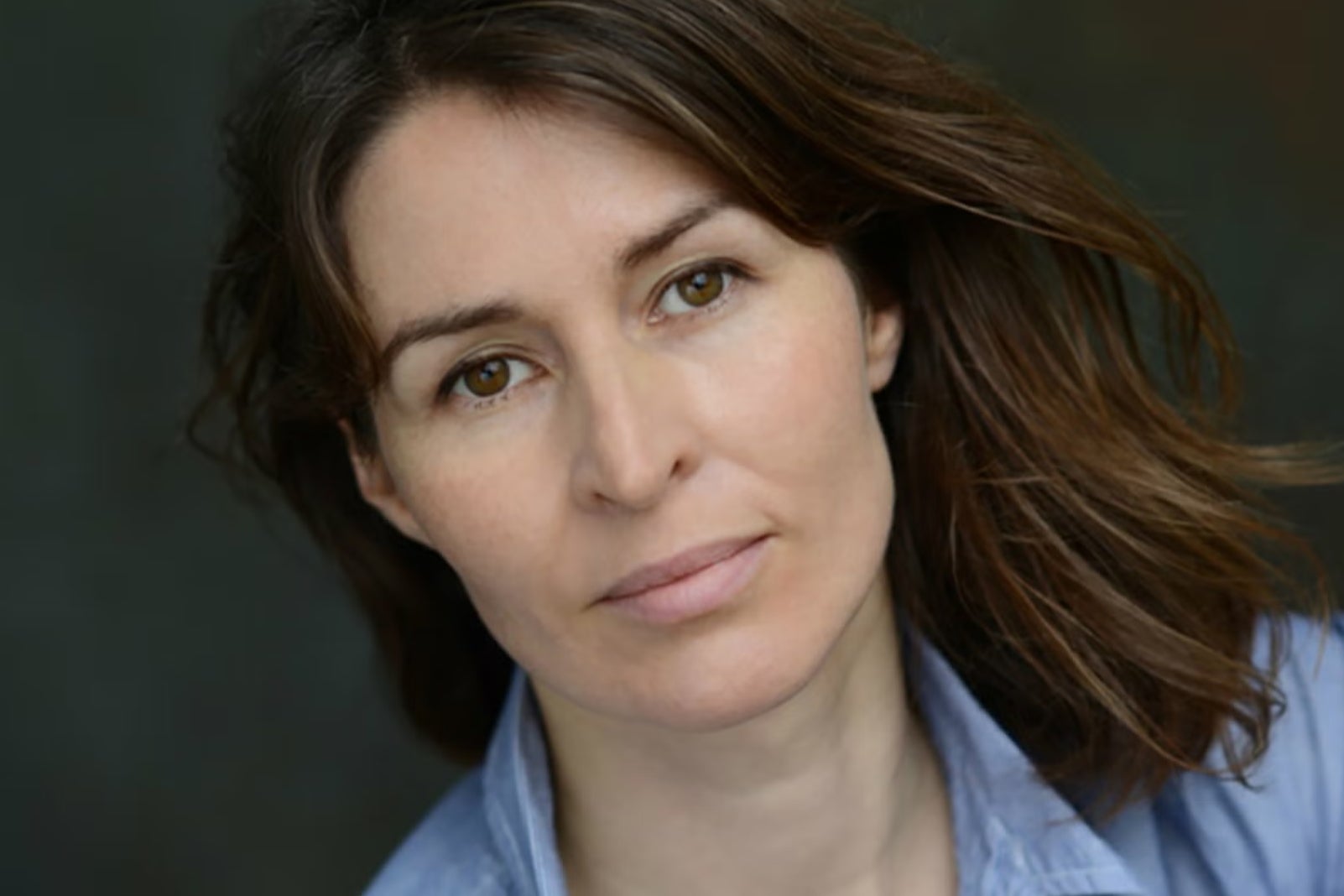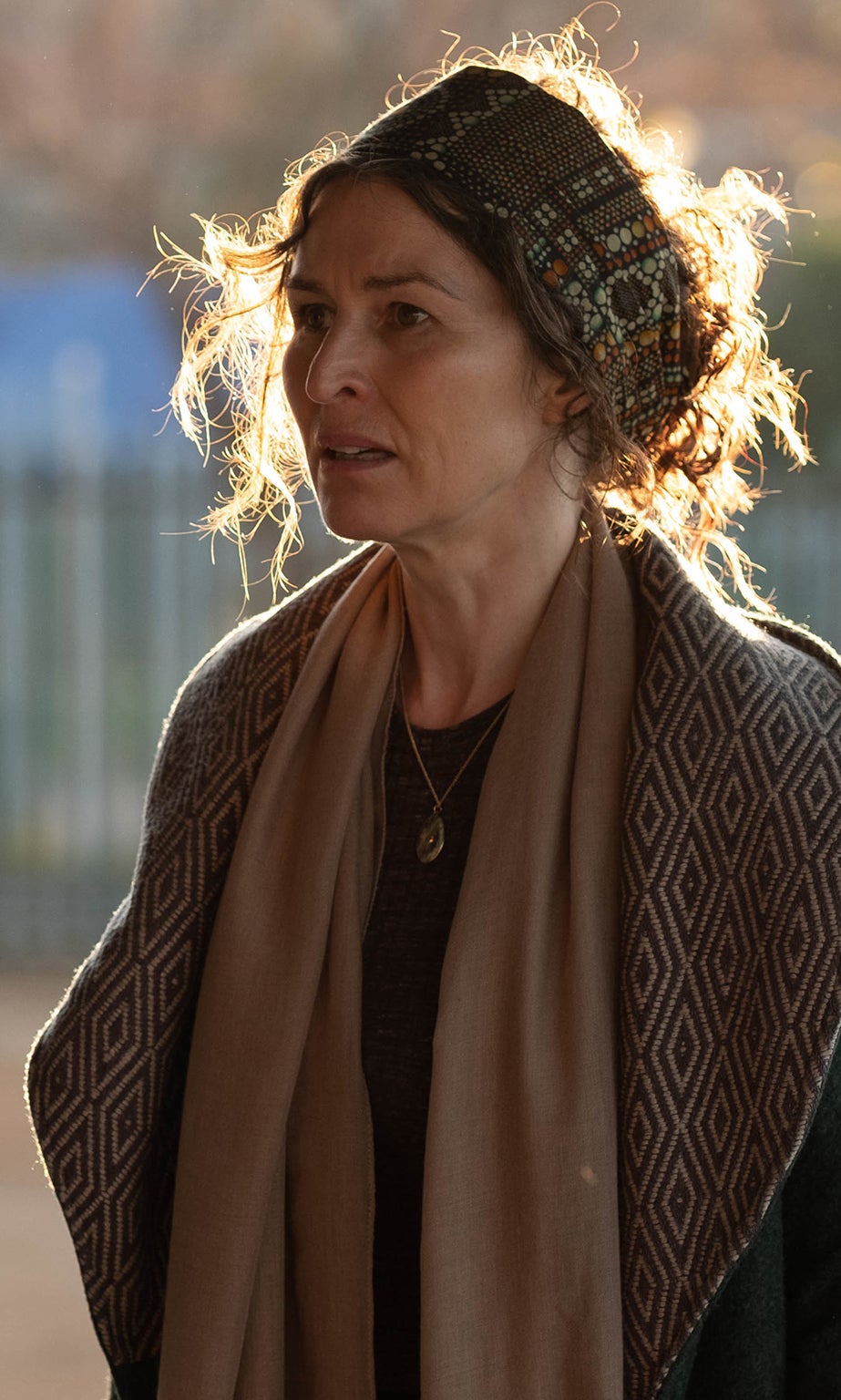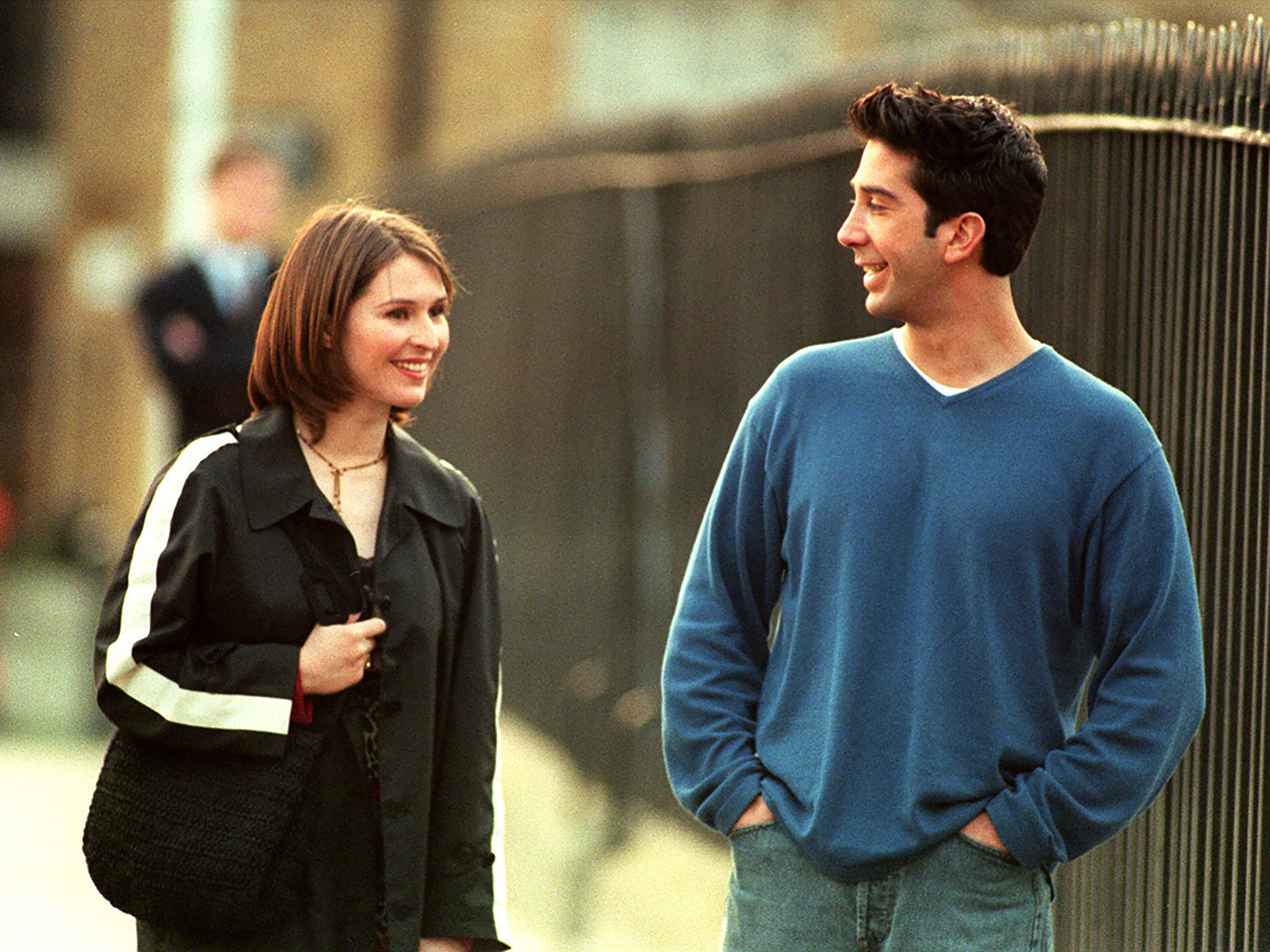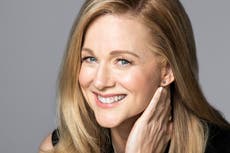Helen Baxendale: ‘Nobody asks me to do sex scenes now, which is a great relief’
The ‘Cold Feet’ star talks to Adam White about the return of ‘Noughts and Crosses’ and feeling s*** about racism, realising she didn’t want the life her ‘Friends’ co-stars had and why she thinks the Queen has something to do with Britain’s obsession with class


It was during her stint on Friends, playing Ross’s English wife Emily, that Helen Baxendale realised she could never be famous. A bit of a trade-off was fine, some mild gawking in the street in return for a nice acting job, but anything bigger than that felt overwhelming, even cruel. Her family was being doorstepped. Her face was on the cover of Hello!. She was always being asked inappropriate questions by journalists. Did she, like her character on ITV’s Cold Feet – broody, glamorous, killed by a cement truck – also enjoy having sex in shop windows? That kind of thing.
“I think I saw where all that eventually takes you,” the 51-year-old says today, surrounded by bookshelves and birdsong over Zoom. “Not that I was heading there at all. But I saw those people in Friends, for example, and thought: I don’t think that life is really what I want. They were hounded. They weren’t able to walk into a supermarket and buy something.” She remains confused that some of that attention transferred onto her at the time. “I didn’t think what I was doing warranted it,” she says. “It wasn’t about me, it was about this...” She hovers her hand to her side, as if drawing a separate entity with her fingers. “This thing… this programme that I happened to be in for a few episodes. The whole thing was bonkers.”
Baxendale was just 27 when she was cast in Friends in 1998, having become a name on British television a few years earlier. In contrast to the maternal warmth she brings to her later work – as a harried mum in the Greg Davies sitcom Cuckoo, or a reluctant freedom fighter in the BBC’s adaptation of Malorie Blackman’s alternate history Noughts and Crosses, which returns this week – her early roles were defined by icy cool, sleek bobs and ironic detachment. In 1994, just two years after graduating from drama school, she played a cynical doctor in Jed Mercurio’s TV debut Cardiac Arrest, and in 1999 an over-her-head detective in the PD James adaptation An Unsuitable Job for a Woman. Rachel on Cold Feet – famed for her on-again/off-again romance with James Nesbitt’s Adam – made her a star. She never felt comfortable, though. “I think you need a certain character to be able to deal with it.”
There’s a surreal prurience to the questions she’d be asked in her past interviews, I tell her. “It was constant!” she remembers. “‘What about the sex scenes?’ [Headlines] would be raunchy this, or raunchy that.” Or, in what must have been Heat magazine’s rock bottom, “Shag Monster”. There was also a fixation on her childcare arrangements. Shortly after her run on Friends, she had her first child, Nell – now an actor, who’s appeared in Game of Thrones (in which she played the young Cersei Lannister) and Blinded by the Light. She now has three children. “It was so sexist. All they went on about was: ‘How do you manage as a mother?’ ‘What do you do with your children while you’re acting?’ They would never ask a man that. Jim Nesbitt never got asked how he brought up his children.” She sighs, pushing her reading glasses back up from the end of her nose. “It was extremely intense and hard and off-putting.”
Baxendale tells me how grateful she is not to have her present-day work rest entirely on her shoulders, or feature the kind of sexuality that made journalists oh-so-fascinated years ago. “Nobody asks me to do sex scenes now, which is a great relief,” she laughs. But I wonder if her experiences back then deterred her from chasing a different kind of career – more starring roles, perhaps more work in America. She ponders it. “No, I don’t think it did affect my choices.” She goes quiet, still humming over the question. “But I did really like being the lead,” she whispers, almost conspiratorially. Baxendale is a bit of a conversational see-saw, as if she’s figuring out her stances in real time, and aware of her own contradictions here and there. “Attention and press still doesn’t sit well with me, but…” She grimaces. “I suppose I’ve been quite prepared to deal with it to get good parts.”
Noughts and Crosses is one of those. The show is the belated TV adaptation of a seminal early Noughties playground read, think a proto-Hunger Games, or Harry Potter without the contemporary cringe. Our heroes are Sephy (Masali Baduza) and Callum (Jack Rowan), teenagers who fall in love despite living on opposite sides of the colour line. In this alternate world, a nation modelled on Africa – known as Aprica here – colonised England years ago, leaving white people a segregated group endlessly confronted with racism and bigotry. Baxendale plays Callum’s mother Meggie, a tough and resilient rock of a woman faced with insurmountable loss as the show opens its second season: Callum is on the run after an act of protest put a target on his back, and her other son Jude (Josh Dylan) is falling deeper into a militia group that uses violence as a tool for change.

Baxendale has incredible gravitas in the series, all quiet strength and private doubt. She says she’s found working on the show enlightening. “I’ve obviously been aware of racism, but in truth I’ve not been affected by it at all. As a white person, how much do you actually think about the consequences of it? The truth is that you just get on with your life. Being on the show has given me more of an appreciation of the oppressiveness of racism and how unjust society can be.” She thinks back to an early scene in the series, in which Callum is given a brown plaster for a wound – a “nude” colour that corresponds to just one skin tone. “I had never thought about the fact that plasters are always white,” Baxendale says. “You just take these things for granted.”
She admits that she struggles to talk about the show’s themes during interviews. “Because I’ve always been on the other end of this divide and this inequality, I feel like I should really shut up because it’s not my space to talk.” Instead, she chooses to sit in the discomfort it creates in her. “I feel a great deal of embarrassment and culpability,” she says, softly. “I just feel s*** for society being like this.”
‘Friends’ and ‘Cold Feet’ seem like historical documents now
Society and the British class system have been on her mind for most of her life, though. Baxendale’s parents were teachers at a comprehensive, who instilled in her the importance of state education. “For a while, [politicians] said that there’s no such thing as class, but I think that’s absolute rubbish,” she says. “It’s very much alive, and I think it’s one of the most awful things about Britain. I love Britain, I think it’s wonderful and it’s my home, but I think it’s shameful that we’re still riddled with class.” She says it’s not helped by our monarchy. “I mean, I really like the Queen,” she laughs, “but I think that’s probably where it starts. And look at the cabinet! How on earth can it be that our leaders all come from such a small spectrum of society? Anyway...” She shakes her head, cutting herself off as if she goes down this road a lot.
Noughts and Crosses has also made her think back to the shows that brought her early fame. As rewatchable as they are, Friends and Cold Feet were blindingly white programmes that felt more comfortable reflecting middle-class fantasy than anything too honest. “They seem like historical documents now,” she says. “Having six white people, or all-white couples.” She thinks she can remember working with only a single actor of colour during her time on Cold Feet. “I had Lennie James as a boyfriend, but that’s… you know, just one. They do feel a bit old-fashioned now.” And probably reflections of the kinds of people in charge back then, I suggest. “Definitely! They speak to who was commissioning them, who was writing them – because it’s not just representation on screen, is it? Again, that’s the whole ‘establishment’ thing, and only people from a certain strata of society getting those top jobs.”

When she finished filming Noughts and Crosses last year, Baxendale told her agent that she must try and do a comedy next. But comedy, she admits, is also something she’s never believed she was very good at. “I don’t feel like it’s my thing at all,” she says, punctuating those last two words with verbal full stops. “I’ve always felt insecure about doing those things because other people are just so good at it.” I admit that it’s surprising – even after the success of Cuckoo, she’s still anxious about being funny?
“Yep, still not confident,” she says with a nervous laugh. “It’s such an exposing thing being an actor. In no other job do people give their opinions about what you’ve done when you’re just walking down the street. I now think that I can be good and I can be bad. But I’ll take it, whatever. I don’t really care any more.” She laughs again but then goes quiet, as if thinking over what she’s just said. “But maybe that is what confidence is? Just not caring as much?”
There must be something that keeps bringing her back to acting, I say, despite that long history of pervy questions and the slight unease it’s always given her. “Well I have to do something! In the end, I’m an actress, you know? Though I always say that I’m very good at being out of work. I’m great at filling my day. But I also do enjoy when I’m in something I think is good. And I’m good in it. It doesn’t happen very often, but when it does…” She cracks a grateful smile. “It’s really wonderful.”
‘Noughts and Crosses’ series two begins Tuesday 26 April at 10.40pm on BBC One
Join our commenting forum
Join thought-provoking conversations, follow other Independent readers and see their replies
Comments


Bookmark popover
Removed from bookmarks